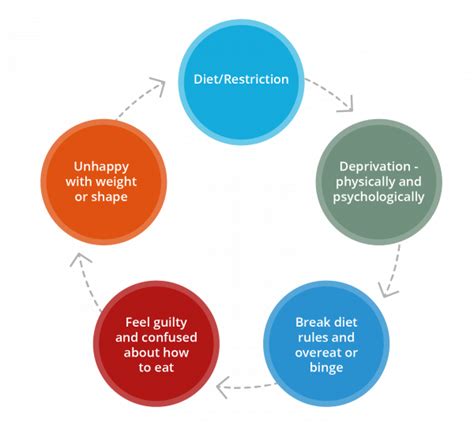
A significant number of married men are reportedly experiencing regret about their marital status, citing feelings of isolation, lack of appreciation, and a sense that their lives have not unfolded as anticipated. A recent article highlighted confessions from married men who express deep dissatisfaction, revealing a stark contrast between the idealized vision of marriage and the realities they face.
The disillusionment stems from various factors, including a perceived loss of freedom, emotional disconnect from their partners, and the burdens of domestic responsibilities. Many men confess to feeling trapped in a monotonous routine, longing for the independence they once enjoyed. The Yahoo Lifestyle article delves into these sentiments, offering a glimpse into the often unspoken struggles of married men.
Several men admitted to feeling emotionally unsupported by their wives, leading to feelings of loneliness and resentment. “I feel like a glorified babysitter and housekeeper,” one man confessed, highlighting the imbalance of responsibilities within his marriage. Another stated, “I miss the days of doing what I wanted, when I wanted,” encapsulating the longing for personal autonomy.
Financial pressures also contribute significantly to the discontent. The responsibility of being the primary breadwinner, coupled with the financial strain of raising a family, often leaves men feeling overwhelmed and stressed. This financial burden can limit their personal pursuits and further fuel feelings of regret.
The Yahoo Lifestyle article suggests that these feelings of regret are not necessarily indicative of a failed marriage but rather a reflection of unmet expectations and a lack of open communication. Many men admit to harboring these feelings for years, afraid to voice their concerns for fear of conflict or judgment. The article underscores the importance of addressing these issues proactively through therapy, open dialogue, and a willingness to compromise.
The phenomenon of married men experiencing regret is not entirely new, but the willingness to openly discuss these feelings represents a shift in societal norms. Traditionally, men have been conditioned to suppress their emotions and maintain a facade of strength and contentment. However, the growing awareness of mental health and the increasing acceptance of vulnerability are encouraging men to express their true feelings, even if those feelings are uncomfortable or unconventional.
The article emphasizes the need for both partners to actively nurture their relationship and address any underlying issues before they escalate into feelings of resentment and regret. It also highlights the importance of maintaining individual identities and pursuing personal interests outside of the marriage, as a means of preventing feelings of stagnation and loss of self.
The long-term implications of these feelings of regret are significant, potentially leading to marital discord, infidelity, or even divorce. Therefore, it is crucial for couples to recognize the warning signs and seek professional help if necessary. Marriage counseling can provide a safe and supportive environment for couples to explore their feelings, improve communication, and develop strategies for resolving conflict.
The confessions shared in the Yahoo Lifestyle article serve as a wake-up call for couples to prioritize their relationship and address any underlying issues before they lead to irreparable damage. Open communication, mutual respect, and a willingness to compromise are essential for building a strong and lasting marriage. Furthermore, understanding the potential pitfalls of marital life and proactively addressing them can prevent the accumulation of regret and foster a more fulfilling and harmonious relationship.
The article also touches on the impact of social media and the unrealistic expectations it can create. The curated images of perfect marriages and idyllic family life often presented on social media can contribute to feelings of inadequacy and dissatisfaction, particularly when individuals compare their own lives to these idealized portrayals. It is important to recognize that social media often presents a distorted view of reality and to avoid falling into the trap of comparing oneself to others.
Furthermore, the changing roles of men and women in society have also contributed to the complexities of modern marriage. Traditional gender roles have become increasingly blurred, leading to confusion and uncertainty about expectations within the relationship. It is crucial for couples to openly discuss their individual needs and expectations and to establish a clear understanding of their respective roles and responsibilities.
The article concludes by emphasizing the importance of actively working on the marriage and maintaining a sense of connection and intimacy. This includes prioritizing quality time together, engaging in shared activities, and expressing appreciation and affection. By investing in the relationship and addressing any underlying issues, couples can create a more fulfilling and rewarding partnership that withstands the challenges of modern life.
The article from Yahoo Lifestyle, titled “Married Men Confess Regrets: ‘Life Isn’t What I Expected,'” sheds light on the often-unspoken discontent experienced by some married men. This dissatisfaction stems from various factors, including loss of freedom, emotional disconnect, financial pressures, and unmet expectations. The article underscores the importance of open communication, mutual respect, and proactive engagement in maintaining a healthy and fulfilling marriage.
In-Depth Analysis:
The Yahoo Lifestyle article presents a concerning, yet increasingly acknowledged, perspective on modern marriage. It deviates from the traditional narrative of marital bliss and delves into the undercurrent of regret experienced by a segment of married men. The confessions highlighted in the article expose the stark contrast between the idealized vision of marriage often portrayed in popular culture and the often-mundane and challenging realities of daily life.
The prevalence of these feelings of regret raises several important questions about the expectations individuals bring into marriage, the societal pressures that shape these expectations, and the communication patterns within marital relationships. The article suggests that many men enter marriage with unrealistic expectations, fueled by romanticized notions of love and partnership. When these expectations are not met, feelings of disillusionment and regret can arise.
One of the key factors contributing to this disillusionment is the perceived loss of freedom and autonomy. Many men confess to missing the days when they could pursue their own interests and make their own decisions without having to consider the needs and opinions of a partner. This loss of independence can be particularly acute for men who entered marriage at a young age or who have always prioritized their partner’s needs over their own.
Emotional disconnect is another significant source of regret. Many men report feeling emotionally unsupported by their wives, leading to feelings of loneliness and isolation. This emotional disconnect can stem from various factors, including a lack of communication, differing emotional needs, or unresolved conflicts. When men feel that their emotional needs are not being met, they may begin to withdraw from the relationship, further exacerbating the problem.
Financial pressures also play a significant role in the feelings of regret experienced by some married men. The responsibility of being the primary breadwinner, coupled with the financial strain of raising a family, can create immense stress and anxiety. This financial burden can limit their personal pursuits and further fuel feelings of regret. The pressure to provide financially can also lead to resentment, particularly if the man feels that his wife is not contributing equally to the household income.
The article also touches on the impact of societal expectations on men’s emotional well-being. Traditionally, men have been conditioned to suppress their emotions and maintain a facade of strength and stoicism. This can make it difficult for men to express their feelings of regret and dissatisfaction, leading them to suffer in silence. The article suggests that the growing awareness of mental health and the increasing acceptance of vulnerability are encouraging men to express their true feelings, even if those feelings are uncomfortable or unconventional.
The long-term implications of these feelings of regret are significant, potentially leading to marital discord, infidelity, or even divorce. Therefore, it is crucial for couples to recognize the warning signs and seek professional help if necessary. Marriage counseling can provide a safe and supportive environment for couples to explore their feelings, improve communication, and develop strategies for resolving conflict.
The confessions shared in the Yahoo Lifestyle article serve as a wake-up call for couples to prioritize their relationship and address any underlying issues before they lead to irreparable damage. Open communication, mutual respect, and a willingness to compromise are essential for building a strong and lasting marriage. Furthermore, understanding the potential pitfalls of marital life and proactively addressing them can prevent the accumulation of regret and foster a more fulfilling and harmonious relationship.
The article’s focus on individual experiences, while impactful, also necessitates a broader understanding of the systemic issues that contribute to marital dissatisfaction. The unequal distribution of domestic labor, the societal pressure on men to be the primary breadwinners, and the lack of adequate support systems for working families all contribute to the stresses and strains that can erode marital happiness. Addressing these systemic issues is crucial for creating a more equitable and supportive environment for all couples.
Background Information:
The concept of marital satisfaction has been extensively studied in the fields of psychology and sociology. Research has consistently shown that marital satisfaction tends to decline over time, particularly after the birth of children. This decline in satisfaction is often attributed to the increased demands of parenthood, the division of household labor, and the challenges of maintaining intimacy and connection amidst the demands of daily life.
Several factors have been identified as predictors of marital satisfaction, including communication skills, conflict resolution skills, emotional intimacy, financial stability, and shared values. Couples who communicate effectively, resolve conflicts constructively, and maintain a strong emotional connection are more likely to experience high levels of marital satisfaction. Conversely, couples who struggle with communication, conflict, or intimacy are more likely to experience dissatisfaction and regret.
The changing roles of men and women in society have also had a significant impact on marital dynamics. Traditional gender roles have become increasingly blurred, leading to confusion and uncertainty about expectations within the relationship. It is crucial for couples to openly discuss their individual needs and expectations and to establish a clear understanding of their respective roles and responsibilities.
The rise of social media has also contributed to the complexities of modern marriage. The curated images of perfect marriages and idyllic family life often presented on social media can contribute to feelings of inadequacy and dissatisfaction, particularly when individuals compare their own lives to these idealized portrayals. It is important to recognize that social media often presents a distorted view of reality and to avoid falling into the trap of comparing oneself to others.
Expanded Context:
The issues raised in the Yahoo Lifestyle article are not isolated to a specific demographic or cultural group. Feelings of regret and dissatisfaction in marriage are universal experiences that can affect individuals from all walks of life. However, the specific factors that contribute to these feelings may vary depending on individual circumstances, cultural norms, and societal expectations.
For example, men who grew up in traditional households where the husband was the sole breadwinner may feel a greater sense of pressure and responsibility to provide financially for their families. This pressure can be particularly acute in today’s economy, where job security is uncertain and the cost of living is constantly rising.
Similarly, men who have difficulty expressing their emotions or communicating their needs may be more likely to experience feelings of emotional disconnect and isolation within their marriage. This is particularly true in cultures where men are discouraged from expressing vulnerability or seeking help.
The article’s focus on men’s experiences also raises important questions about the experiences of women in marriage. While the article focuses on the regrets of married men, it is important to acknowledge that women also experience feelings of dissatisfaction and regret in marriage. In fact, some studies have shown that women are more likely than men to initiate divorce.
The reasons for women’s dissatisfaction in marriage may differ from those of men. Women may feel overburdened by domestic responsibilities, underappreciated for their contributions to the household, or emotionally neglected by their husbands. They may also feel that their own needs and aspirations are being sacrificed for the sake of their families.
It is crucial to recognize that both men and women can experience feelings of regret and dissatisfaction in marriage. Open communication, mutual respect, and a willingness to compromise are essential for creating a strong and lasting partnership that meets the needs of both individuals.
The article also highlights the importance of seeking professional help when needed. Marriage counseling can provide a safe and supportive environment for couples to explore their feelings, improve communication, and develop strategies for resolving conflict. Therapy can be particularly helpful for couples who are struggling with issues such as communication problems, infidelity, financial stress, or parenting disagreements.
In addition to marriage counseling, individual therapy can also be beneficial for individuals who are struggling with feelings of regret or dissatisfaction. Therapy can help individuals to identify the underlying causes of their unhappiness, develop coping mechanisms for dealing with stress, and make positive changes in their lives.
Direct Quotes:
- “I feel like a glorified babysitter and housekeeper.”
- “I miss the days of doing what I wanted, when I wanted.”
Frequently Asked Questions (FAQ):
-
What are the main reasons married men confess to feeling regret about their marriages?
- The primary reasons include a perceived loss of freedom and autonomy, emotional disconnect from their partners, financial pressures related to being the primary breadwinner, unmet expectations about the reality of married life, and a feeling of being trapped in a monotonous routine. Some men also feel a lack of appreciation and support from their wives.
-
Does this article suggest that most married men are unhappy?
- No, the article does not suggest that most married men are unhappy. It highlights a growing number of men who are openly confessing to feelings of regret. It is important to note that the experiences shared in the article do not represent the experiences of all married men. The article emphasizes the importance of addressing these issues proactively through communication, therapy, and compromise.
-
What steps can couples take to prevent feelings of regret from developing in their marriage?
- Couples can take several proactive steps, including maintaining open and honest communication, actively nurturing their emotional connection, setting realistic expectations for marriage, prioritizing quality time together, maintaining individual identities and pursuing personal interests, addressing conflicts constructively, seeking professional help when needed, and expressing appreciation and affection regularly.
-
How does financial pressure contribute to marital regret among men?
- Financial pressure can lead to significant stress and anxiety for men who feel responsible for providing for their families. The burden of being the primary breadwinner can limit their personal pursuits, create feelings of resentment, and contribute to an overall sense of being trapped and unfulfilled. This financial strain can further fuel feelings of regret, particularly if the man feels that his wife is not contributing equally to the household income.
-
What role does social media play in influencing feelings of regret in marriage?
- Social media often presents curated and idealized images of marriage, which can create unrealistic expectations and lead to feelings of inadequacy when individuals compare their own lives to these portrayals. The constant exposure to seemingly perfect relationships can contribute to dissatisfaction and regret, particularly if individuals are already experiencing challenges in their marriage.
Conclusion:
The Yahoo Lifestyle article, “Married Men Confess Regrets: ‘Life Isn’t What I Expected,'” provides a valuable insight into the often-unspoken struggles of some married men. By highlighting the various factors that contribute to feelings of regret, the article underscores the importance of open communication, realistic expectations, and proactive engagement in maintaining a healthy and fulfilling marriage. While the article focuses on men’s experiences, it is important to recognize that both men and women can experience feelings of dissatisfaction and regret in marriage. Ultimately, building a strong and lasting partnership requires mutual respect, a willingness to compromise, and a commitment to addressing any underlying issues before they lead to irreparable damage. The article serves as a reminder that marriage is not always the fairytale it is often portrayed to be, but rather a complex and ever-evolving relationship that requires constant effort and attention.









